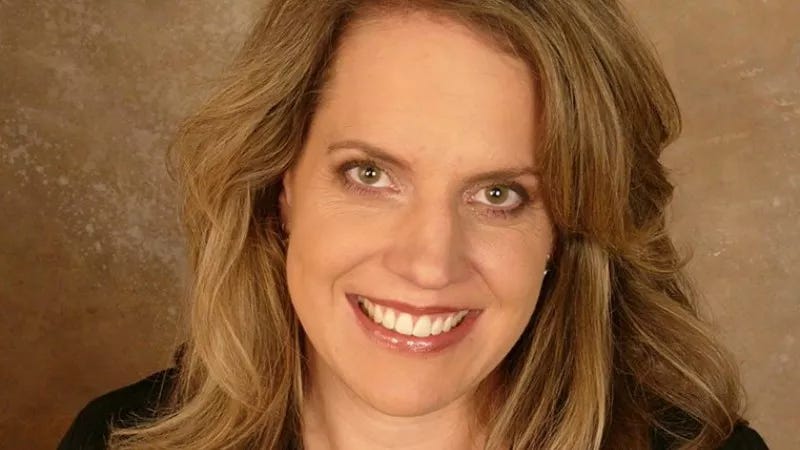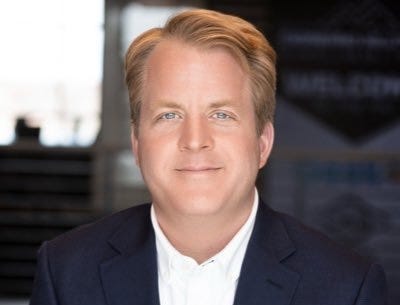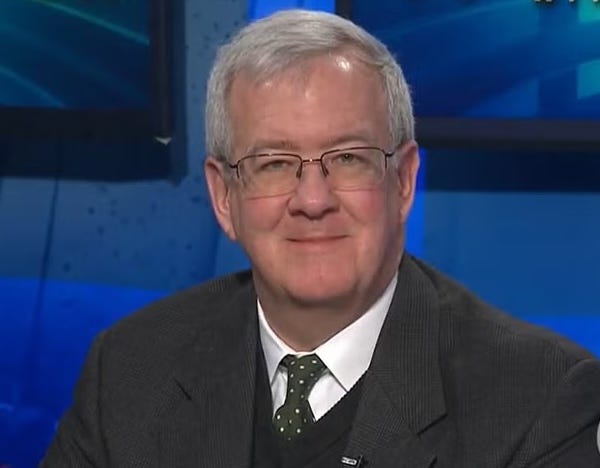Good word
Skilled FreeCon columnists reach key audiences across the United States
On every platform that delivers information, analysis, and commentary about politics and public policy, you’ll find Freedom Conservatives.
Television networks, radio shows, news sites, social media, podcasts — however Americans follow the public conversation about their country’s biggest issues, they’re likely to read, see, or hear FreeCons defending the principles of the American Founding from both progressive and populist attacks.
The conversation isn’t confined to national channels and outlets, of course. Although authoritarians of the Left and Right seem intent on drawing power — and public attention — to Washington, many Americans are resisting their efforts.
They agree with what we wrote in the Freedom Conservatism Statement of Principles, that much of today’s discord “comes from the fact that too many decisions are made for us by centralized authorities” and that “the best way to unify a large and diverse nation like the United States is to transfer as many public policy choices as possible to families and communities.”
Local media outlets continue to play a significant role in reporting news and offering analysis to readers, who now primarily consume such local journalism online rather than in print. Today, we feature FreeCons who write regular columns for local media organizations.
Unfair competition
Krista Kafer is a Sunday columnist for the Denver Post, the author of the “Think Different” Substack, and a frequent radio and television commentator. She’s also a FreeCon signatory.
A Colorado native, Kafer returned to the state after nine years in the nation’s capital where she worked for two members of Congress and served as the senior expert on education policy at the Heritage Foundation.
She has taught public speaking, persuasive writing, rhetoric, and media & politics at Regis University, the University of Denver, and University of Colorado campuses in Denver and Boulder.
In a recent Post column, Kafer explained that even though she enjoys listening to public radio, its federal subsidies “are unfair to taxpayers and station competitors.”
“Journalism has changed,” she wrote. “Growing up, new news and analysis could be found in newspapers, magazines, and on broadcasts, and old news in books and on microfiche archives. Thanks to the internet, these sources now compete with websites, blogs, social media, podcasts, and online video.”
“The operative word here is ‘compete.’ These news and opinion sources, like their traditional counterparts — public broadcasting excepted — are 100% dependent on subscribers and advertisers without any handout from taxpayers.”
“It’s only fair that public radio and television stations compete on equal footing.”
Keep tax dollars out
Andy Brehm is a columnist for the Minnesota Star Tribune, a corporate lawyer, and a FreeCon signatory.
A conservative commentator in the Minneapolis-St. Paul area for nearly two decades, Brehm has appeared frequently on KSTP’s “At Issue” and TPT’s “Almanac.” He also served as press secretary to former U.S. Sen. Norm Coleman.
In a recent column, Brehm admitted that he’d erred in 2006 by writing a Star Tribune piece in favor of taxpayer support for a new Minnesota Twins ballpark.
In return for public funds, the team’s owners promised a more competitive team and higher player payrolls. “That never panned out,” he wrote.
“Minnesotans should consider lessons learned here,” Brehm continued, “and no longer be willing to subsidize professional sports teams owned by billionaires and staffed by multimillionaires.”
“I have no doubt the American free market can provide more than adequate resources for pro clubs to profit and players and owners to get rich. I have no problem with that — so long as tax dollars remain out of the equation.”
Clownish and petty
Michael Hicks is the George and Frances Ball Distinguished Professor of Economics and Director of the Center for Business and Economic Research at Ball State University in Muncie, Indiana. He’s also a FreeCon signatory.
Hicks previously served on the faculty of the Air Force Institute of Technology’s Graduate School of Engineering and Management and at research centers at Marshall University and the University of Tennessee.
He has authored three books and more than 50 scholarly papers. His work has been featured in such outlets as Rolling Stone, The Economist, The Wall Street Journal, The New York Times, and The Washington Post.
Hicks also writes a weekly column that appears in several newspapers in his state, including the Indianapolis Star.
In a recent column, Hicks wrote that “President Trump has moved the U.S. closer to socialism than any president in history.”
By demanding that NVIDIA and AMD pay the federal government 15% of their revenue from sales to China, and then coercing Intel to give the U.S. Treasury a 10% ownership stake, Trump used “clownish and petty” tactics to impose his will on private firms, he argued.
“The U.S. entered 2025 with robust economic growth, low unemployment and a booming stock market. All of that could come to a halt. Trump isn’t reacting to a crisis, he is the crisis.”
In the mix
• At Longleaf Politics, FreeCon signatory Andrew Dunn reflects on the assassination of Charlie Kirk and what it tells us about a category error in American politics.
“When we turn politics into a religion, we forget who we are,” wrote Dunn, a regular columnist for The Charlotte Observer and Raleigh News & Observer. “And worse — we forget who we belong to.”
“That’s what makes this moment so dangerous. We’ve replaced moral courage with moral confusion. We’ve traded the Ten Commandments for ten thousand tribal hashtags.”
“The real problem we’re facing isn’t that people disagree about politics. It’s that too many of us have made politics the core of our identity, the thing that defines who we are, who we hate, and what we think makes someone human. But politics cannot bear that weight. It was never meant to.”
• In USA Today, FreeCon signatory Patrice Onwuka argued that women are increasingly choosing freelance and work-from-home options to balance career and family, a trend that may not be fully captured by existing employment statistics.
“Policymakers can be pro-women, pro-worker, and pro-Gen Z by protecting flexible work,” wrote Onwuka, director of the Center for Economic Opportunity at the Independent Women's Forum.
“Congress can codify a simpler, clearer definition of independent contractor status under federal law that makes it easier to remain independent. The Employee Rights Act and Modern Worker Empowerment Act do just that. States should reject California’s model and embrace worker freedom.”
• In City Journal, FreeCon signatory Judge Glock summarized a new study showing that laws intended to protect tenants from unfair treatment by landlords had actually hurt more than helped renters.
“Laws that made it harder to evict tenants raised rents by an average of about $1,200 a year — roughly a 6% increase,” wrote Glock, director of research at the Manhattan Institute. “Laws banning background screenings had a smaller but still notable effect, adding a few hundred dollars a year, or about 3%.”
“The tenant-protection campaign was never based on evidence, but instead on the vague suspicion that bad landlords were behind America’s urban ills. One hopes that with clearer proof of the costs of these laws, some proponents will have second thoughts.”
• In the Washington Examiner, FreeCon signatory David Harsanyi predicted that Republican overconfidence could open the door for a Democratic comeback in 2026 and 2028.
“Republicans scoff at the prospects of an oily politician like Gavin Newsom winning the presidency,” wrote Harsanyi, an Examiner columnist and author of The Rise of Blue Anon. “But it’s not exactly far-fetched. The California governor is more shrewd and effective than Kamala Harris, who lost the race by a relatively narrow margin considering her situation and abilities.”
On the Republican side, “whoever ends up the nominee will have to face the reality of the GOP losing ground among the fastest growing and most vital demographic, the suburban voter,” he continued.
“A populist Republican candidate will have to recreate Trump’s success among the fastest shrinking demo in the country, the ‘working class’ white voter, in places like Michigan and Pennsylvania.”
• At The Fulcrum, FreeCon signatory Lynn Schmidt praised the popular Savannah Bananas baseball franchise as an entrepreneurial model “for combating isolation through shared joy, communal experience, and the radical act of prioritizing fun and acting silly over competition.”
A columnist and editorial-board member at the St. Louis Post-Dispatch, Schmidt observed that the team has sold out every game since their 2016 inaugural season in Savannah, Georgia, and has since grown a ticket waitlist of more than two million fans from all over the world.
“In a world that often feels fractured and polarized, maybe we all need a little more Banana Ball — where, in a ballpark or stadium, strangers become friends through the simple act of dancing, clapping, and laughing together between innings,” she wrote.



